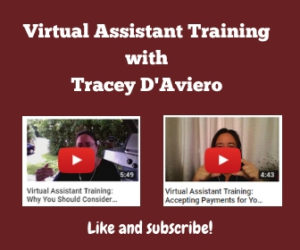First impressions matter, in every relationship – but especially in business.
When a client has paid you money or agreed to work with you, their expectations kick into gear immediately.
If you aren’t providing a great first impression, you could be losing a bit of your client’s trust before you even start working together.
Have you developed a great onboarding process for your new clients?
If you haven’t, I have some great tips for you.
Your process for onboarding clients should be all about clarity and communication.
1. Send a welcome letter or email.
Once a client agrees to work with you, clearly outline what comes next for them. Be succinct in your emails – try not to get too wordy. Simply outline the coming steps – are you sending a contract? an invoice? adding them to a project management system? Whatever steps you will take is what you outline in the welcome. And don’t forget to thank them!
2. Send your contract for signature.
If you have a way to have the client sign the contract online this is always easiest for everyone. Services like HelloSign or DocuSign are great options. You want to remove as many obstacles as possible for the client. A click and sign option makes things super easy.
3. Set up your task management systems.
If you will be using a project management system, set up your tasks in it and be sure to communicate well for each project or task. Simplicity is best again here, so let the client know your expectations. My experience was that clients did not want to log in to a project management system to update things, but they appreciated being able to see progress in projects.
4. Schedule regular (brief!) production calls.
While project management systems and email are the main ways VAs communicate with their clients, I still find that speaking directly is a great gateway to excellent communication. By scheduling a regular production call (weekly or bi-weekly) the client feels appreciated and heard, and you can keep the flow of your work going with the online systems. Keep production calls high-level, maximum 30 minutes, and do the rest of your collaborating online.
5. Establish who does what.
If you have team members, define all roles so the client is clear who does what. If you are the point person for all work, be sure that you are keeping both the client and the team member in the loop. Or if the client has other team members that you will be working with, get clear on who does what and when! If it is just you and the client, you still need to define what the client does and what you do, for collaborative things you are both working on.
6. Use procedures to complete all tasks.
When you are working with a new client, their way of doing things is not always the same way that others do things. Be sure to identify each client’s procedures clearly so that you or your team members don’t miss any crucial steps. For instance, if your client sends out a weekly newsletter, identify the steps to complete it – and indicate who is responsible for which pieces (what does the client provide? what do you create or provide?). Clarity is essential when the task is something everyone has a role in.
7. Check in regularly to ensure all is well.
Onboarding doesn’t end once you begin working together. Check in with the client regularly to make sure that everything is going the way they expect it to. A simple email is all that’s required, or ask them on your production call. Is there anything they would change to improve your working relationship?
Onboarding is such an important part of your business.
You want to make it easy to work with you. Remember that the client has likely started working with you to make their business run more smoothly. Don’t add to their chaos – do your best to remove it!
By following these simple steps, you will be able to identify and manage your client’s expectations and you will be on your way to building a solid and long-lasting relationship! (and happy clients lead to referrals to other happy clients!)
If you want some help getting your processes in order, check out my free VA training videos on my new Youtube channel.
